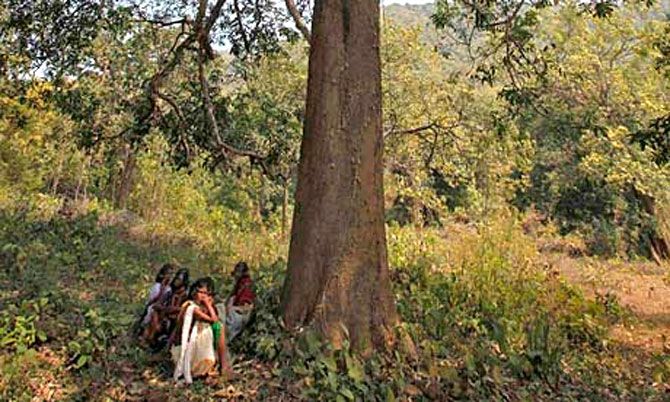Environment ministry readies draft to dilute tribal rights to help India Inc

After a lot of back and forth, the National Democratic Alliance (NDA) government is ready with a notification to dilute tribal rights that would make it possible for most industries to chop down traditional forests without the consent of gram sabhas — a precondition that exists at the moment.
After the Prime Minister’s Office overruled the tribal affairs ministry, the environment ministry has prepared a draft which will re-interpret the Forest Rights Act. If the notification is passed — the government intends to do it over the next week — the industry would find it easier to secure tribals’ traditional forestlands in tribal areas than it would to secure other types of lands. The notification has been drafted cherry-picking ideas from the land ordinance, as well as a rejected report from the United Progressive Alliance (UPA) era.
At present, under the Forest Rights Act, the government is not allowed to hand over forests to industry without securing consent from gram sabhas where the tribals have their traditional rights. This requirement was re-affirmed by the Supreme Court in the Vedanta Niyamgiri mining case. Since the time the NDA took over, it has attempted to alter this and take away the need for consent though the tribal affairs ministry has repeatedly warned that it cannot be done without a full amendment to the law.
But with the approval of the PMO, the environment ministry has drafted the notification reinterpreting the law, which would consequently not require the government to go to Parliament for approval.
Initially, the environment ministry had suggested doing away with the consent explicitly, but the stout defence from the tribal affairs ministry of the legal requirement of consent, the new draft couches its intents though effectively would do away with the need for consent in most cases.
The draft notification says projects that come up in tribal forestlands situated outside Schedule V and VI areas and are required to hold a public hearing for an environment clearance under the Environment Protection Act, 1986 need not seek tribal gram sabhas’ consent.
Scheduled V and VI areas are some designated parts of the country, where the tribal population is higher but they do not cover large forest tracts where tribals live across India.
Most large-sized projects are required to hold such public hearings but these are consultative in nature and do not provide the impacted communities a veto over the project. Over the last decade, even overwhelmingly negative results of public hearings have been ignored while giving clearances. This idea has been lifted from a report that was authored by the PMO during the UPA’s second tenure but eventually rejected for falling foul of the Forest Right Act’s provisions.
The notification also makes an exception of all linear projects such oil pipelines, roads, railways and powerlines.
In the scheduled areas too, where tribal populations are in higher densities, the consent clause is to be diluted by permitting other local bodies or authorities besides the gram sabha to give the consent instead. Gram sabhas or village councils form the primary level of democratic bodies unlike higher level bodies which are prone to administrative pressures.
To add to this, the Centre wants to leave it to the states to ensure the consent is taken or to ascertain the need for consent under the revised regulations. This would take the onus off the Union government to ascertain rights of tribals before giving the forest clearances.
The environment ministry too wants to reduce its responsibility of verifying the facts regarding tribal rights suggesting that there are other parts of the government that should be responsible.
While the tribal affairs ministry is expected to comment on the draft notifications, sources in the government said, most of their objections have already been over-ruled along with a draft they had prepared earlier for revision of the regulations.











